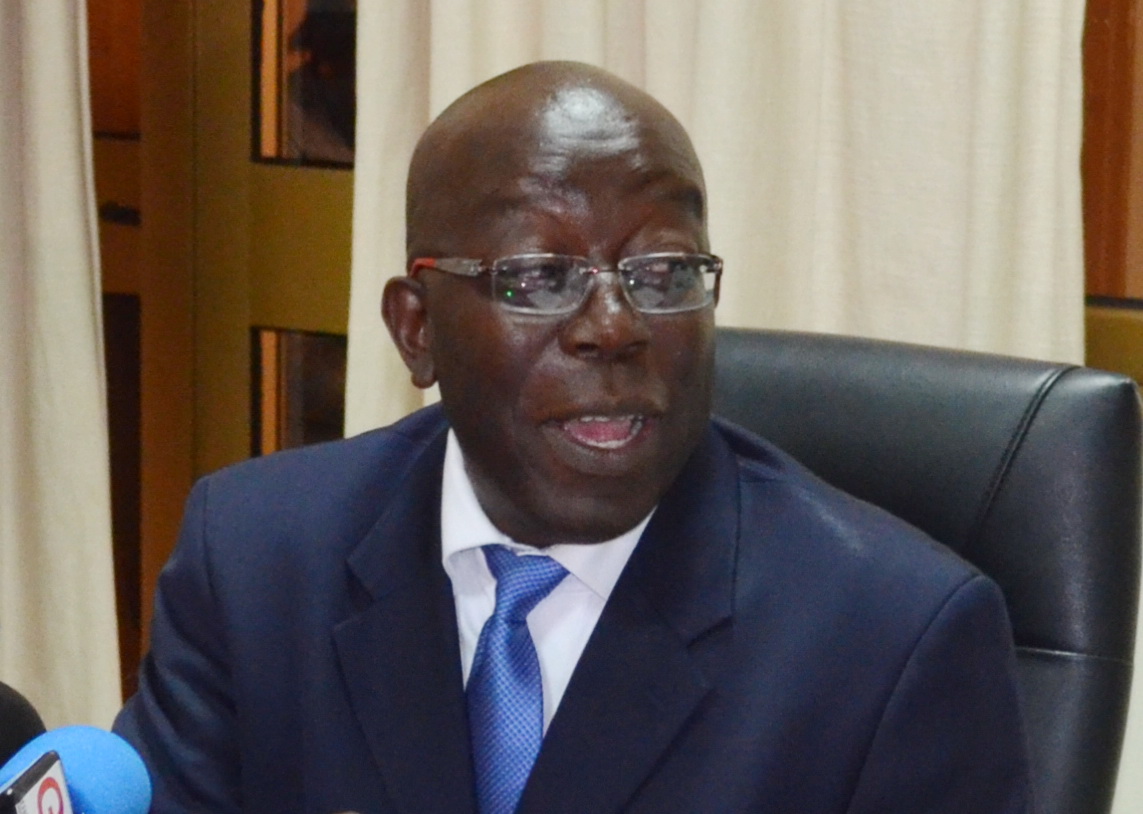
Trouble at SSNIT...Contributors worried over pension scheme
Participants in the Graphic Business/Stanbic Bank Breakfast Meeting on pensions in Accra have expressed a lack of confidence in the tier one pension scheme being operated by the Social Security and National Insurance Trust (SSNIT).
They complained that benefits accruing from the pension scheme were not commensurate with workers’ contributions during their working lives.
They, therefore, asked the tier one pension fund manager, SSNIT, to justify the 11 per cent pension contribution from workers.
They argued that SSNIT operated a defined benefit plan that ensured adequacy of benefits to contributors, as happened worldwide, and, therefore, contributors in Ghana should be better off in retirement.
Advertisement
Computation of benefits
A trade unionist, Mr Isaac Mensah, accused SSNIT of not being fair to beneficiaries of the scheme over the years and accused it of employing certain factors in the computation of benefits, a situation which was not backed by law.
“If I happen to contribute to SSNIT between 20 and 30 years and you have kept my money for over 20 years; if I am retiring and you claim I am supposed to pay for earning 25 per cent of my lump sum today, then what is my benefit for all the number of years you kept my money?” he asked.
Again, he said, the early retirement reduction factor that SSNIT was employing did not have any legislative backing but it was using that to deduct so much money from contributors’ lump sum.
He appealed to all stakeholders to keep the National Pensions Regulatory Authority (NPRA) on its toes to find out why SSNIT was paying minimal benefits to contributors.
“When some people see the amount that they are to take home, they end up getting stroke because it is so bad,” he said.
A representative from the University of Ghana Pensioners Association, Mr James Madakadina, accused the management of SSNIT of misusing contributions and paying meagre benefits to contributors on retirement.
“Why should they do that? Is the money for them? The NPRA should sit up and make sure SSNIT does not dissipate our money,” he said.
He added that statements of accounts should also be published to ensure that all contributors had access to them.
Lawyer agrees
The concerns of the participants were supported by the partner in charge of Pensions, Employment and Immigration at Bentsi-Enchill, Letsa and Ankomah, Ms Angela Akosua Gyasi, who said SSNIT contributors deserved and should get better returns on their contributions.
“In a modern world where defined contribution plans are growing and proving to be more valuable, is there a justification for giving SSNIT a chunk of contributions? It takes 13.5 per cent, out of which 2.5 per cent goes to the National Health Insurance Scheme (NHIS); but is there any economic justification for giving SSNIT a chunk of it all?” she quizzed.
Speaking on the topic: “The law and pensions”, Ms Gyasi said the returns given to people were inadequate and showed clearly that there must be something wrong, looking at the fact that other countries managed with five per cent or less of contributions but beneficiaries were better off.
She said perhaps the percentage of contributions to SSNIT should be reduced and if the trust was able to manage the funds to win more confidence, then the 11 per cent could be restored.
“I am not saying that they should scrap SSNIT, but I believe that it should justify why I should give it 11 per cent of my contribution,” she said.
Pension reforms
As part of the reforms in the pension industry introduced in 2008, a three-tier pension scheme was introduced to replace the basic scheme then operated by SSNIT.
The reforms brought on board the defined contribution (DC) occupational pension scheme and a voluntary, privately managed DC provident fund and personal pension schemes to augment the basic scheme currently managed by SSNIT.
Contributions to the SSNIT scheme are made up of 5.5 per cent of workers’ basic salary and 13 per cent of workers’ basic salary by the employer, bringing the total to 18.5 per cent.
Need for a robust pension regime
Pension funds play a critical role in economic development, including providing capital for the government’s infrastructure programmes and improving capital markets.
“If we are going to have a robust pension system, we don’t only have to have a pension system that is right for retiring people but also one that provides coverage for all Ghanaians and with adequacy of benefits,” Ms Gyasi said.
She said although there was adequate provision in the Pensions Act that covered people in the informal sector, majority of Ghanaians were without pensions.
Given the importance of pensions, she said, it was time to ask if pensions should be made compulsory for every single person.
“Is it time to make registration with SSNIT compulsory before you allow a company to register at the registry? Is it time to make it compulsory for foreigners to register with SSNIT before they can get their work permit? These are things to think about,” she added.
Other concerns
A former Managing Director of the SIC Insurance Company Limited, Mr Peter Osei Duah, observed that people seemed excited about the defined contribution benefit scheme where the benefits had been promised, but said such endeavours came with risks.
He warned that if contributors put their money in those schemes and the investments did not turn out too well, then whatever happened to their investment would be what they would be given at the time and, therefore, all the risk was on them as contributors.
